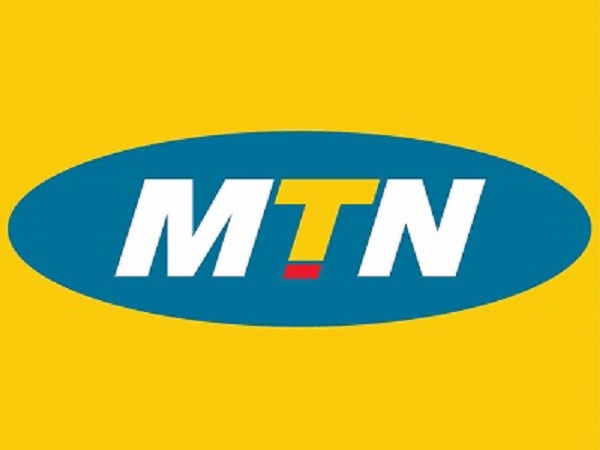Telecom
NLC Pickets MTN, Others for Maltreating Workers

Nigeria Labour Congress (NLC), said that it picketed the corporate headquarters of MTN and the Abuja Environmental Protection Board (AEPB), because of their anti-labour activities and inhuman treatment of workers.
Comrade Ayuba Wabba, president of NLC, said that the action was planned to coincide with the International Day for Decent Work; adding that the labour movement must fight hard, henceforth, to ensure decent work ideal was established and followed in Nigeria.
The NLC president, who regretted the high level of anti-labour practices in the two organization and others across the country, stated that casualisation of workers by multinationals and other indigenous companies is a crime against humanity and will be resisted by labour.
Citing the case of NTN Nigeria, he pointed out that while the company is refusing unionisation, its counterpart in South Africa, Kenya and Ghana are unionised and they have better working conditions.
He said the congress has received several complaints about the anti-labour practices in these companies.
Wabba said “We have identified two organisations, the Abuja Environmental Protection Board where casualisation has been on and workers have been denied the rights to unionise among other issues.
“Secondly is MTN. Every three months, they sack the workers and give them a new contract. This is not acceptable, our laws does not accept that, and those workers need to be liberated.
“We need to tell them that they need to respect international labour laws, they need to also respect our own labour laws but importantly, they must respect human and trade union rights.
“Workers have dignity, workers are not slaves and therefore, all workers must be treated with the best of attention. Injury to one is injury to all. Injury to the workers at MTN and AEPB is an injury to all Nigerian workers.”
Wabba said: “In South Africa, MTN workers are unionized all by the Congress of South African Trade Union (COSATU), their affiliates from the telecommunication sector. Same with the one in Kenya and that of Ghana, our question is why should the MTN workers in Nigeria be the people that will be treated worse?
“This campaign is a global strategy endorsed by the International Trade Union Confederation (ITUC) all over the world that we must stand up for MTN Nigeria workers and they must have their rights, they must also have a condition of service that is commensurate with MTN workers in South Africa, in Kenya and the other parts of the world.
“Why should there be a difference between the condition of MTN workers here in Nigeria and what obtains elsewhere around the world”.
He, however, warned that labour would come back to picket MTN outlets nationwide if these issues were not tackled.
He added: “We have tried to engage the management, and we have mutually agreed that a process of dialogue to discuss this issue and also to discuss the issue of MTN workers in Nigeria in general will take place and that they are going to revert back to us in the next one week and then the process of dialogue. The whole idea is making sure that Nigeria MTN workers should not be second class workers when compared to other MTN workers around the world.
“We must insist that they must continue to work in dignity, they must continue to work in honour and therefore, they are not be enslaved. We have told them very clear that the corporate headquarters is in Lagos and so this is a starting point and we will be ready in the near future if this issue is not addressed, to actually picket MTN offices all over Nigeria because we have done that in the past and we thought that MTN workers deserve a better deal.
“If we need a revisit, certainly we will be there, if we need further step to expand the scope of coverage of this action we will do it. If we are going to need the support of our other counterparts from Ghana, Kenya, Tanzania, and South Africa, ITUC global will give us a signal and we will do a global campaign to actually address the issue”.
Wabba who led the picketing, earlier at the corporate Headquaters of AEPB and MTN gave the management one month to address the anti labour practices, or the congress would return to picket the organisation.
Telecom
NCC Asks Consumers to Monitor Data Usage to Authenticate Consumption

Nigerian Communications Commission (NCC) has charged the over 174 million telecoms subscribers in the country to constantly monitor their data usage to authenticate their consumption level.

This follows concerns being raised by telecoms consumers about the rapidity of data depletion on their devices.
The Commission particularly enjoined the consumers to always contact their service providers to make requests for cases of discrepancies noted in their data usage.
While the consumers are expected to contact their service providers to request for their usage history/statement where inconsistency exists in their data usage as first step, the Commission said they may also escalate such issues to the Commission through its toll-free Number 622 and social media platforms, especially if their requests are not satisfactorily handled.
The Commission, which also made some clarifications regarding the concerns being raised by the consumers around data usage, said the need to inform the consumers on their concerns is part of its commitment to protect and appropriately inform and educate the telecom consumer on industry issues.
Making further clarifications around data speed and usage, the Commission said data speed is the speed at which data is transferred between two devices, measured in megabits per second (Mbps or mbps), stressing that given the spread of Internet services and the immense investment in the sector, data rates have continued to increase and users may be unaware of how to measure data speed.
The telecoms regulator explained further that websites such as www.fast.com also provide an easy way for consumers to measure Internet speed on any device at any location.
“The higher the data speed, the quicker pages load-downloads and uploads-occur and expectedly, the quicker data bundles are exhausted. So, as telecom consumers are able to do more on devices in less time, some consumers’ devices & network service providers make it possible to limit data speed to help users manage data usage better.
“In any case, most devices now include functions to measure data used by devices and it is imperative that users monitor same to authenticate data usage, such as applications left running on devices. Therefore, where discrepancies occur users may contact their service provider to request for their usage history/statement. If request is not dealt with satisfactorily then, users can contact NCC by calling 622 or engage the Commission via its social media platforms”.
It added that the data usage experience is a function of location, network equipment and users connected in a particular location.
Telecom
Phone Theft: AMCODET Urges Mandatory Registration @ Point of Purchase

Association of Mobile Communication Device Technicians of Nigeria (AMCODET), has called on the Nigerian Communications Commission (NCC) to make it mandatory for mobile phones to be registered at the point of purchase.

According to Kehinde Apara, president of AMCODET, implementing this registration process would significantly help in combating phone theft and assist in locating stolen devices.
Apara, made this appeal in an interview in Lagos on Monday.
He stated, “Registration of mobile phones will reduce theft to the barest minimum, as it will be difficult for thieves to sell registered stolen phones.”
Apara explained that the registration of new phones would also help to reduce the harassment faced by technicians by security agencies.
“So many of our members have been labelled accomplices in theft cases, because customers bring stolen phones to them to repair. We believe this is unfair to such innocent people,” he said.
He went on to highlight that the NIN-SIM linkage, which was originally an idea brought forward by AMCODET, was created to curb insecurity and theft.
However, Apara pointed out that “It is not enough.”
He stressed the need for further measures to ensure the proper registration of mobile phones, emphasising that such a step would make it easier for technicians to identify stolen devices brought in for repair or flashing.
“AMCODET has been at the forefront of organising seminars on the security of mobile phones and has also been sensitising the public and authorities on the challenges faced by the association due to phone theft. There is no way our members can identify if a phone is stolen when brought to them for repairs or flashing, but if the phone is registered, the technician can more easily identify it,” he explained.
Apara also expressed a desire for closer collaboration with security agencies, saying, “We want to work with security agencies to ensure that phones are properly registered, theft is prevented, and thieves are brought to book.”
In additin to the call for phone registration, Apara appealed to individuals and the private sector to support efforts to develop the mobile phone industry in Nigeria.
He remarked, “We need individuals’ support to develop our industry, rather than relying on government for everything.”
He emphasised that Nigeria has the capacity to develop its own technology and reduce reliance on imported devices, “With the support of individuals and the private sector, Nigerians can begin to develop its own technology, rather than relying on imported technology.”
Apara expressed optimism for the future of the mobile phone industry in Nigeria, believing that with the right support, the country could build its own technological solutions and move towards greater self-reliance.
“We can develop our own technology.”
“But we need the support of individuals and organisations to make it happen,” he said.
Credit: NAN
Telecom
Apple Faces €150M Fine in France Over Alleged Antitrust Violations

French antitrust regulators have fined Apple 150 million euros ($162 million) over its App Tracking Transparency (ATT) feature, which is facing scrutiny in multiple European countries.

The French Competition Authority ruled that Apple’s implementation of ATT was “neither necessary nor proportionate to the company’s stated goal to protect user data” and unfairly penalized third-party publishers.
Alongside the financial penalty, Apple has been ordered to publish the decision on its website for seven days. The ruling comes amid ongoing investigations in Germany, Italy, Romania, and Poland into ATT, which Apple introduced in 2021 as a privacy safeguard.
ATT requires apps to obtain explicit user consent via a pop-up before tracking activity across other apps and websites. If users decline, the app loses access to their advertising identifier, limiting targeted advertising. Critics argue that the system disproportionately benefits Apple by restricting competitors while promoting its own advertising services.
The French watchdog found that ATT forces users to navigate excessive consent windows for third-party apps on iPhones and iPads, making the process unnecessarily complicated.
Additionally, Apple’s system requires users to opt out of ad tracking twice rather than once, which the authority said undermines the feature’s neutrality and causes economic harm to app publishers and ad service providers.
The ruling emphasized that smaller publishers, which rely heavily on third-party data collection for revenue, are particularly affected.
The French regulator initially declined to impose emergency measures in 2021 after complaints from the advertising industry, but continued its investigation, ultimately leading to Monday’s decision.

 Telecom2 days ago
Telecom2 days agoMTN, Lynk Global Make Africa’s First Satellite-to-Mobile Call

 E-Financial2 days ago
E-Financial2 days agoNigeria Gets Fresh $500m World Bank Loan for Economic Stimulus Programme

 E-Business2 days ago
E-Business2 days agoSystemSpecs’s Subsidiary Deelaa Becomes Whatadeal

 General News2 days ago
General News2 days agoSERAP Asks National Assembly to Drop Bill to Jail Nigerians who Fail to Vote

 E-Financial2 days ago
E-Financial2 days agoUninsured Depositors of Heritage Bank to Receive Liquidation Dividends In April – NDIC

 Telecom2 days ago
Telecom2 days agoSmart Treasure Investment Team’s Initiatives Eradicate Poverty, Says Aminu

 E-Business2 days ago
E-Business2 days agoCybersecurity Firm Says It’s Time to Back it Up, As the World Marks World Backup Day

 Telecom2 days ago
Telecom2 days ago15-Year-Old Autistic Artist, Kanye, to Unveil World’s Largest Art Canvas on Autism Awareness Day
























